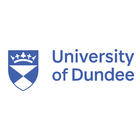This course prepares you with the knowledge and skills required to join a growing international workforce within the rapidly advancing field of biological data science, an area of ever-increasing importance in the biotechnology and pharmaceutical industries.
The course design reflects our extensive industry interactions. You will learn a broad spectrum of skills and knowledge for a successful career in a variety of academic, industrial and science-related sectors related to data sciences in a biological or biomedical context.
You will gain skills in using computational methods to access and analyse data, make predictions, construct models and evaluate model quality. As a new data scientist, you will build your programming skills for specific data analysis purposes. There will be a focus on the different algorithms for machine learning, statistical analysis and data modelling.
You will apply sophisticated analysis methods to discover the deeper meaning behind the complex data generated by biological and biomedical research in such areas as -omics (genomics, proteomics, and metabolomics), microscopy and imaging, protein structure analysis, and in the process of drug discovery.
You will enhance your critical skills in information retrieval, research ethics, entrepreneurship, statistics, analysis of current science and literature, as well as transferable skills in presentation and communication, data visualisation, team-working, problem solving, and project management.
The course will allow you to learn about and experience the world leading collection of cutting edge technology platforms in the biosciences on offer at the University of Dundee. Alternatively, you can choose to gain an understanding and practical knowledge of molecular modelling and simulation in the fields of biology and drug design.
Your final project will give you important hands-on experience offering enhanced employability. It will enable you to refine relevant skills, and interact with researchers at the forefront of their discipline.
We welcome participants from a range of scientific backgrounds, including biological, biochemical or biomedical sciences, physics, computing or mathematics. Training courses in those areas you may be less accustomed to will be provided.





